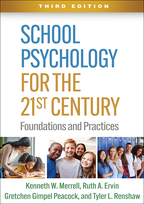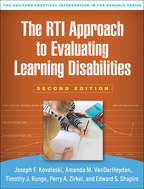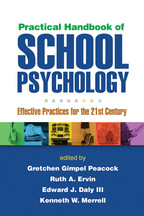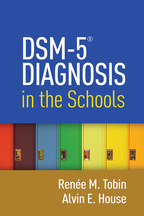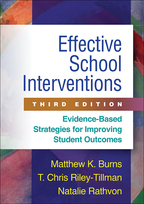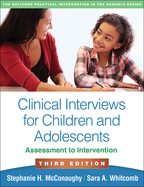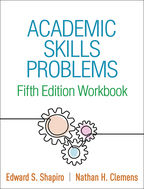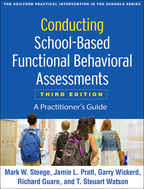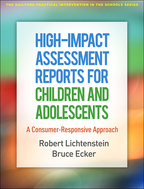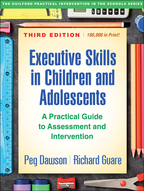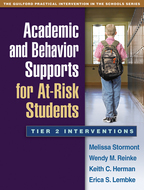School Psychology for the 21st Century
Third Edition
Foundations and Practices
Kenneth W. Merrell, Ruth A. Ervin, Gretchen Gimpel Peacock, and Tyler L. Renshaw
Hardcovere-bookprint + e-book
Hardcover
orderMay 4, 2022
ISBN 9781462549535
Price: $68.00 334 Pages
Size: 7" x 10"
e-book
orderApril 6, 2022
PDF and Accessible ePub ?
Price: $68.00 334 Pages
ePub is Global Certified Accessible
print + e-book $136.00 $81.60
orderHardcover + e-Book (PDF and Accessible ePub) ?
Price: 334 Pages
ePub is Global Certified Accessible
“A ‘must-have’ for school psychology graduate students, practitioners entering the field, and seasoned school psychologists who want to ensure their practices are current. From reader-friendly descriptions and summaries to lists of relevant articles and resources, this edition does not disappoint….The amount of quality in less than 300 pages is phenomenal….This text sets a solid foundation for understanding the complex role school psychologists fill and is written in a way that allows a reader to easily reference a particular topic when needed.”

—NASP Communiqué
“In its third edition, School Psychology for the 21st Century remains the introductory text that all school psychologists in training should read. The focus on problem solving and multi-tiered systems of support aligns perfectly with current standards and practices in the field. This is an excellent text for introductory school psychology courses as well as for current practitioners who want to expand their skills.”

—T. Chris Riley-Tillman, PhD, Department of Educational, School, and Counseling Psychology, University of Missouri–Columbia
“Since the first edition, I have enjoyed this text's comprehensive coverage of the central domains of the field, its focus on data-driven problem-solving strategies, and its consistent insights and forward-thinking approach. I appreciate the changes in the third edition, including updated data on who school psychologists are and what they do, newly published assessment instruments, emerging intervention frameworks, and heightened emphasis on positive psychology constructs, including social–emotional health. I highly recommend this book for first-year graduate students in school psychology and for university trainers seeking to broaden their views and adjust their vantage points, consistent with progress in the field.”

—Randy G. Floyd, PhD, Department of Psychology, University of Memphis
“This stellar work is a comprehensive foundational text for graduate students who are learning critical aspects of the profession. The updated third edition further integrates the problem-solving model, tiered supports, and data-driven practices into each chapter. New topics that reflect important trends in the field have been astutely chosen and emphasized. Offering a deep and broad introduction to the field, the text presents critical information that is easily accessed, well researched, and illustrated with realistic and interesting examples. Thoughtful discussion questions at the end of each chapter guide students to explore ways they can apply the content.”

—Ellie Young, PhD, NCSP, Department of Counseling Psychology and Special Education, Brigham Young University
“A comprehensive text that provides a highly relevant and timely introduction to the field. This engaging text is a great choice for an introductory graduate course in school psychology and can be a resource to practitioners. The discussion questions and activities at the end of each chapter will be useful for readers to extend what they have learned and deepen their understanding of the content. I look forward to using the third edition in my courses.”

—Stacy-Ann A. January, PhD, NCSP, School Psychology Program, University of South Florida
—NASP Communiqué
“In its third edition, School Psychology for the 21st Century remains the introductory text that all school psychologists in training should read. The focus on problem solving and multi-tiered systems of support aligns perfectly with current standards and practices in the field. This is an excellent text for introductory school psychology courses as well as for current practitioners who want to expand their skills.”
—T. Chris Riley-Tillman, PhD, Department of Educational, School, and Counseling Psychology, University of Missouri–Columbia
“Since the first edition, I have enjoyed this text's comprehensive coverage of the central domains of the field, its focus on data-driven problem-solving strategies, and its consistent insights and forward-thinking approach. I appreciate the changes in the third edition, including updated data on who school psychologists are and what they do, newly published assessment instruments, emerging intervention frameworks, and heightened emphasis on positive psychology constructs, including social–emotional health. I highly recommend this book for first-year graduate students in school psychology and for university trainers seeking to broaden their views and adjust their vantage points, consistent with progress in the field.”
—Randy G. Floyd, PhD, Department of Psychology, University of Memphis
“This stellar work is a comprehensive foundational text for graduate students who are learning critical aspects of the profession. The updated third edition further integrates the problem-solving model, tiered supports, and data-driven practices into each chapter. New topics that reflect important trends in the field have been astutely chosen and emphasized. Offering a deep and broad introduction to the field, the text presents critical information that is easily accessed, well researched, and illustrated with realistic and interesting examples. Thoughtful discussion questions at the end of each chapter guide students to explore ways they can apply the content.”
—Ellie Young, PhD, NCSP, Department of Counseling Psychology and Special Education, Brigham Young University
“A comprehensive text that provides a highly relevant and timely introduction to the field. This engaging text is a great choice for an introductory graduate course in school psychology and can be a resource to practitioners. The discussion questions and activities at the end of each chapter will be useful for readers to extend what they have learned and deepen their understanding of the content. I look forward to using the third edition in my courses.”
—Stacy-Ann A. January, PhD, NCSP, School Psychology Program, University of South Florida

